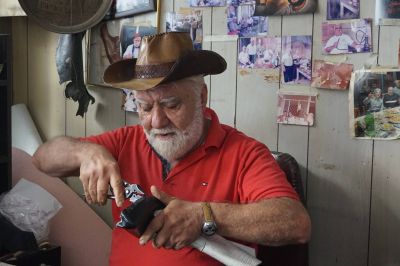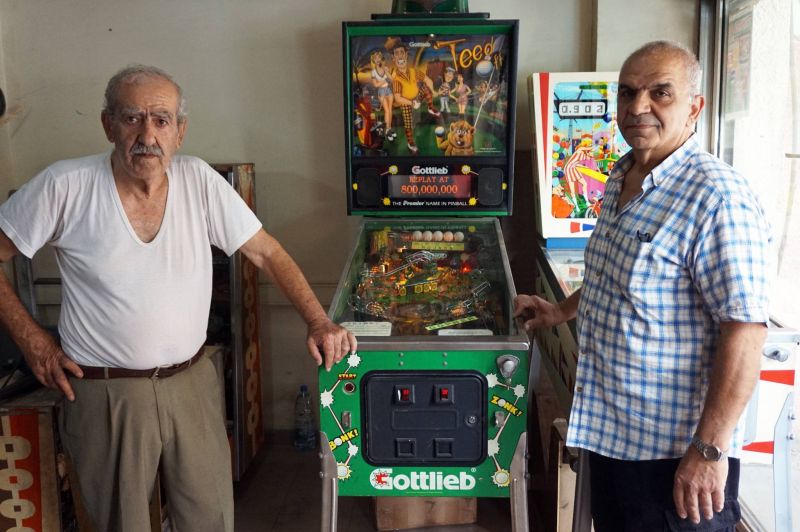
Charbel Nahed and Bechara Lahoud collect and repair vintage pinball machines, gaming devices, slot machines and jukeboxes. (Credit: Carla Henoud/L'Orient-Le Jour)
This is not Las Vegas. Far from it.
In this corner of Khalil Badaoui street, the heart of old Beirut beats slowly and passionately—always with resolute nostalgia. The neighbors' laundry slowly dances on the line, rocked by a lovely autumn breeze.
Leaning over a car engine, the garage owner chats with his neighbor, a grocery store owner. They stand alongside a shrine to the Virgin Mary, which may have been installed there after the Aug. 4 Beirut port blast. Sitting on her dilapidated balcony, an old woman bides her time, watching life go by as she sips her morning coffee.
In the shop of their partner, Charbel Nahed and Bechara Lahoud collect vintage pinball machines, gaming machines, slot machines and jukeboxes. They purchase these sublime pieces and resuscitate them, while preserving the retro look that gives them charm and value.
The friendly and professional duo complement each other perfectly, never tiring of each other's jokes.
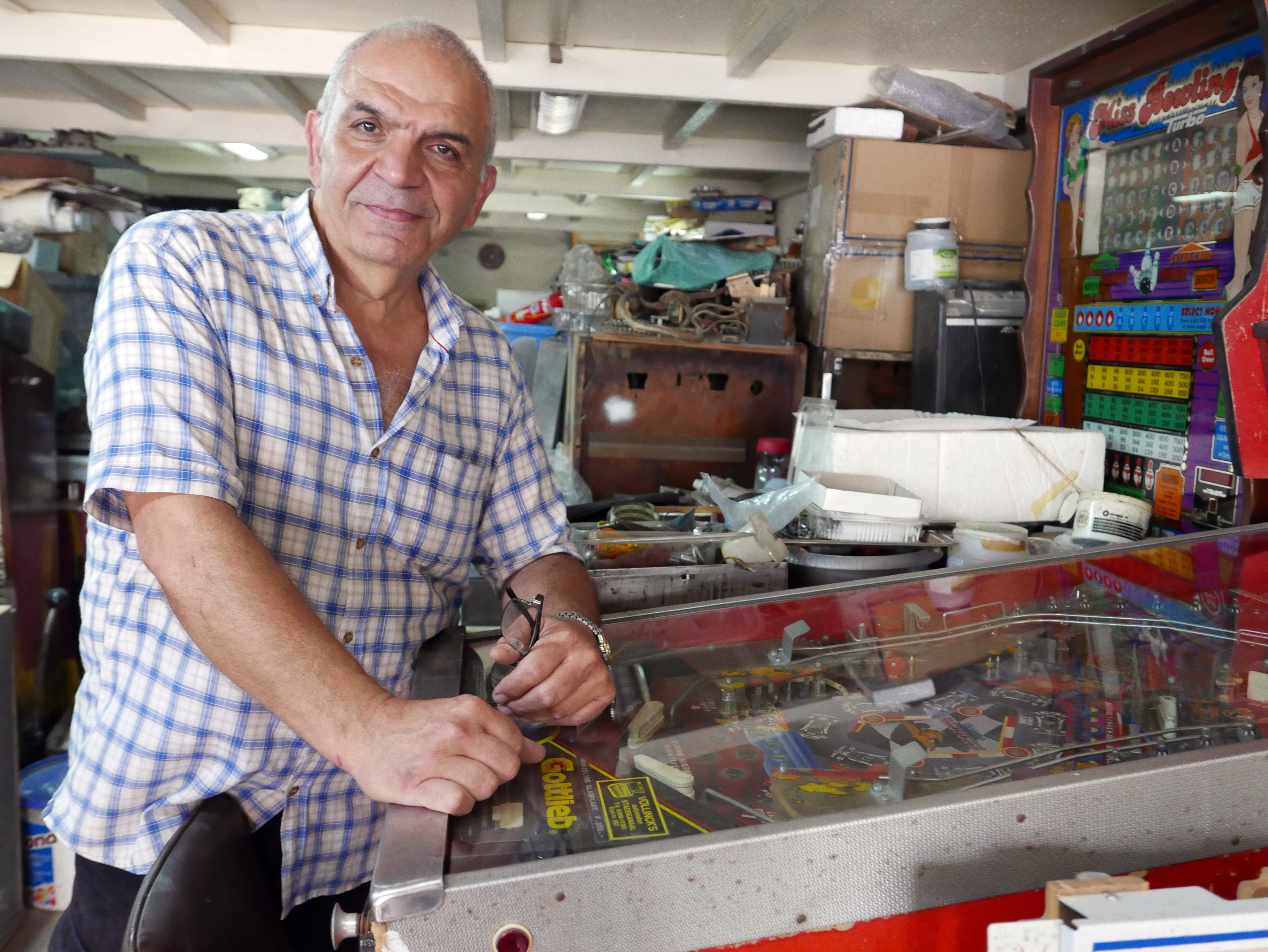 Bechara Lahoud in his natural habitat. (Credit: Carla Henoud/L'Orient-Le Jour)
Bechara Lahoud in his natural habitat. (Credit: Carla Henoud/L'Orient-Le Jour)
Charbel, standing to the right, gets the ball rolling. Resplendent in a white t-shirt and baggy trousers, a mustache and a subtle sense of humor that defies his serious demeanor, he addresses Bechara, who is more reserved and calm, despite his Bermuda shorts and teasing smile.
Together, uttering their memorable lines in this charming setting, they could be the main characters of a '60s television sitcom.
“I was born on Oct. 10, 1950,” says Charbel, sitting on a plastic chair outside, enjoying a break.
“That year, Charbel appeared!” added Bechara, himself born March 25, 1956. They had different paths, and distant relatives, but they collaborate today to save these increasingly rare pieces, not from oblivion — they are still very popular — but from a death foretold.
The dynamic duo
After working a few different jobs, Charbel discovered pinball machines and fell in love with them. “I assembled the first pinball machines in Lebanon in 1969,” he declares. “My boss, Georges Hojeily, was the first to import these machines. I stayed with him for six years, until the war broke out.”
“This business was very profitable. I was able to get married, buy a house and raise my two boys within a few years,” he recalls. “I loved this game, so, in order not to spend all my money, I preferred to make it a business.”
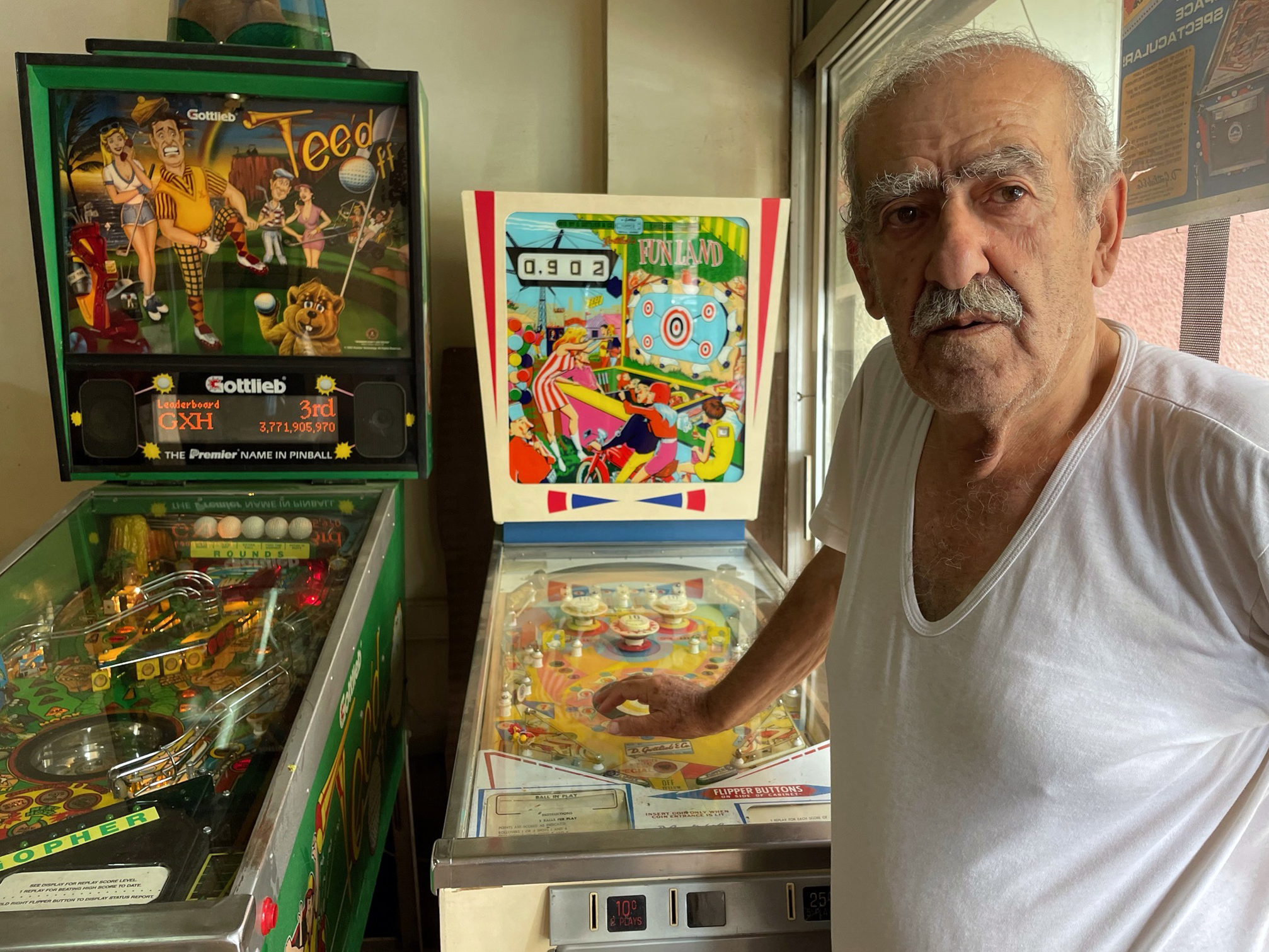 Charbel Nahed in front of newly repaired pinball machines. (Credit: Carla Henoud/L'Orient-Le Jour)
Charbel Nahed in front of newly repaired pinball machines. (Credit: Carla Henoud/L'Orient-Le Jour)
In 1996, Bechara was a technical team leader, team manager and floor manager at Casino du Liban. “My number at the Casino was 222,” he recalls. “I retired in 2020 but I could have continued working, I loved it so much.”
“He still has the strength of a horse!” Charbel adds. The two partners joined forces in the 1970s, during “the glory days of these machines.”
“Each one had his job,” says Charbel, the most talkative of the two. “We had all the customers of Lebanon. We complemented each other.”
The 1975-1990 Civil War did nothing to dampen the success of pinball machines and slot machines. “Kaslik,” they say in chorus, “became like Las Vegas!”
Gradually, however, they witnessed the decline of these games as fashions changed. The mood grew less festive and, above all, “the machines have evolved and gone electronic.”
As a result, these precious vintage machines have become essentially decorative elements valued by aesthetes and collectors.
Their main customers come from Rabieh, Faqra, Ashrafieh and Kfardebian, but, Charbel says, also include “nostalgic people who still remember that they used to run away from school for a game of pinball or slot machines,” when then-Prime Minister Saëb Salam banned them because he saw them as a bad influence on society and the youth.
“The owners of gaming halls reacted and won their case.”
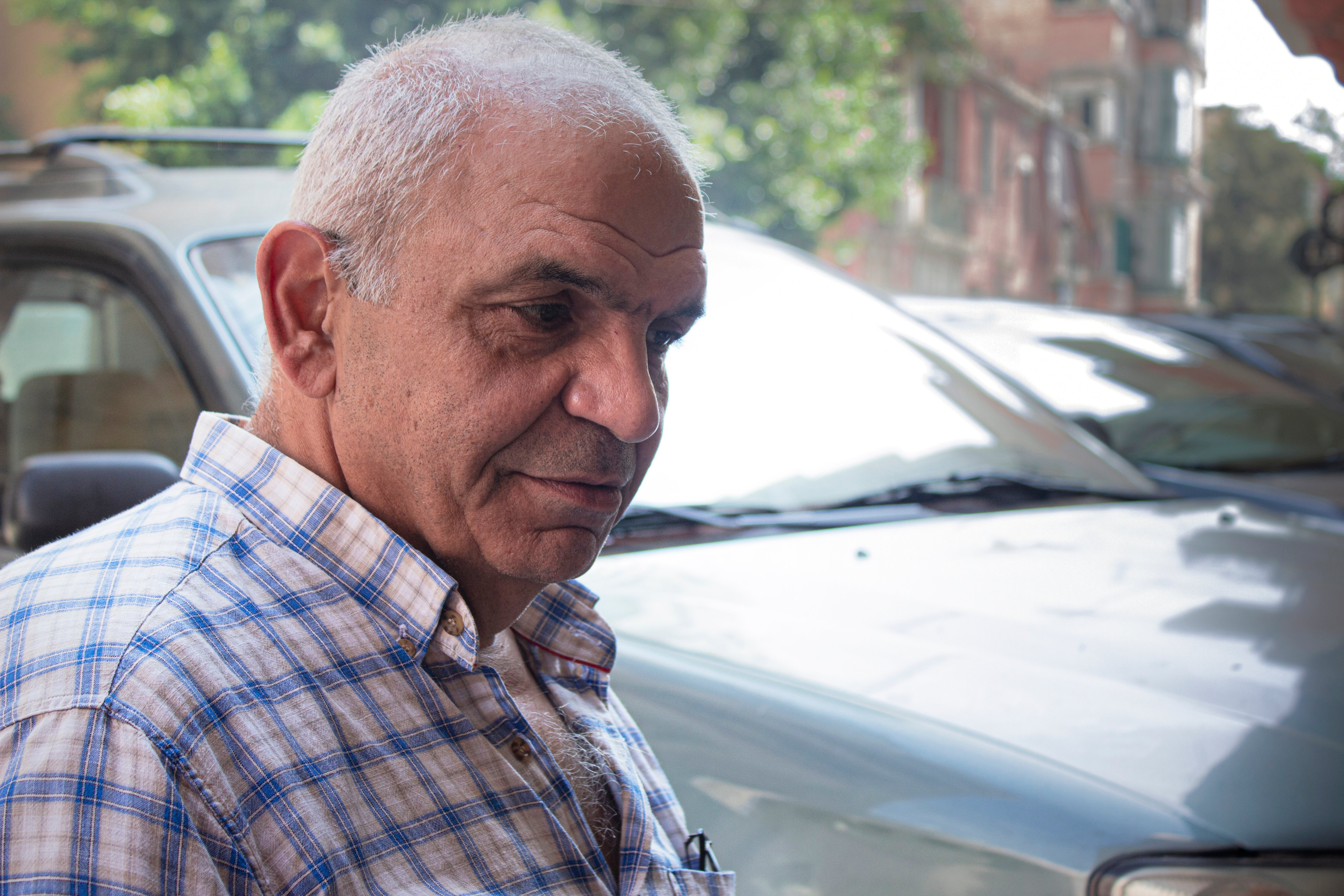 Bechara Lahoud, a true professional. (Credit: Jad Abou Jaoude/L'Orient-Le Jour)
Bechara Lahoud, a true professional. (Credit: Jad Abou Jaoude/L'Orient-Le Jour)
High technicality
“We buy parts from suppliers with whom we have worked for a long time, repair the often defective system and sell them on. Each part is precisely cleaned, dusted and repaired. The machines are sold very quickly,” said Bechara.
The partners have a solid technical background, but, Charbel admitted, “I don't know anything about electronics. When it comes to repairing a modern part, it's Bechara who does it, while I take care of everything mechanical. We do everything together.”
“When we can't find spare parts, we make them,” added Charbel. “I learned this business on my own, while Bechara did a three-and-a-half-year internship in France and another two years in Japan!”
Despite the difficult conditions, the neighborhood generator's subscription alone costs LL4 million, and without the generosity of Joseph, their friend who does not take rent, “We could not have continued.”
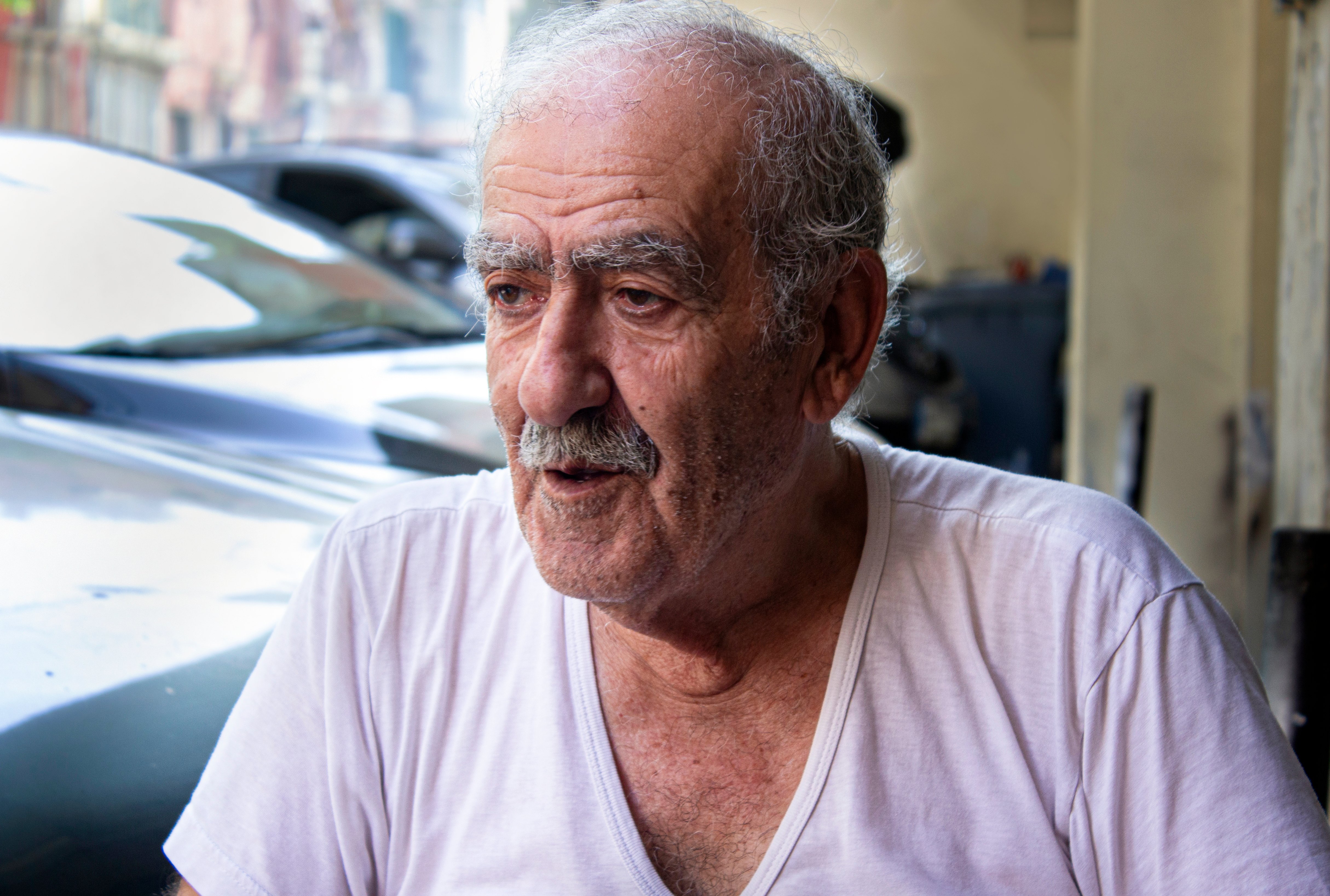 Charbel Nahed, in the pinball repair business since 1969. (Credit: Jad Abou Jaoude/L'Orient-Le Jour)
Charbel Nahed, in the pinball repair business since 1969. (Credit: Jad Abou Jaoude/L'Orient-Le Jour)
There was an immediate return to the 1980s when they both said, “Do you want to play a game?”
The famous and very beautiful Gottlieb machine lights up with all its colors, the metal ball appeared and slipped in quickly, the tilts rang out and the numbers went crazy on the board.
Quickly remember it, and especially remember this moment and this meeting, which are certainly worth the detour.
To contact them: Bechara Lahoud 03/859057, Charbel Nahed: 70/556648.
You can find these portraits on the @thereadyhand Instagram page
This article was originally published in French in L'Orient-Le Jour. Translation by Joelle El Khoury.
